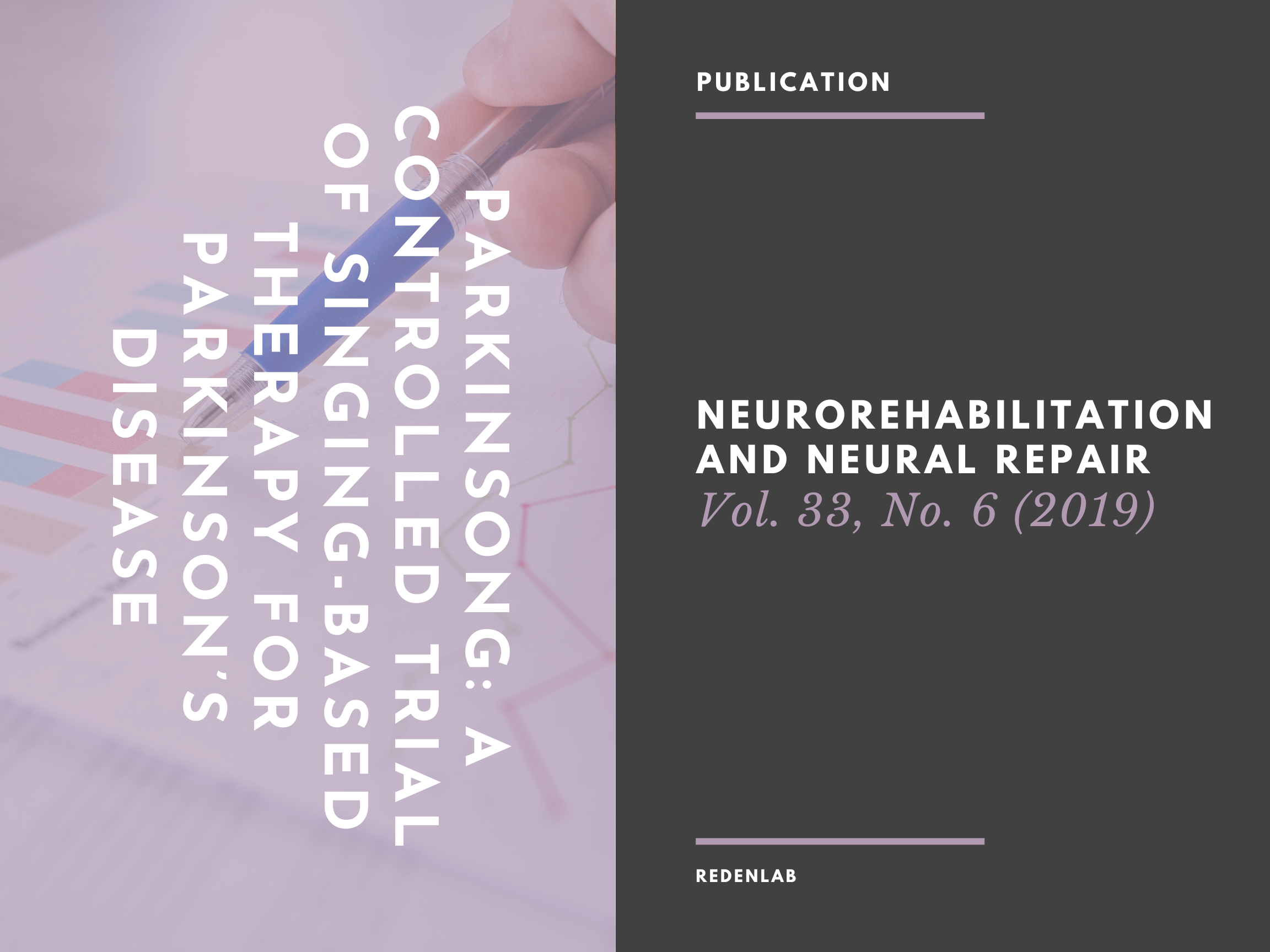ParkinSong: A controlled trial of singing-based therapy for Parkinson’s disease

Background: Communication impairment is one of the most common symptoms of Parkinson’s disease (PD), significantly affecting quality of life. Singing shares many of the neural networks and structural mechanisms used during speech and, thus, has potential for therapeutic application to address speech disorders.
Objective: To explore the effects of an interdisciplinary singing-based therapeutic intervention (ParkinSong) on voice and communication in people with PD.
Methods: A controlled trial compared the effects of the ParkinSong intervention with an active control condition at 2 dosage levels (weekly vs monthly) over 3 months, on voice, speech, respiratory strength, and voice-related quality-of-life outcomes for 75 people living with PD. The interdisciplinary ParkinSong model comprised high-effort vocal and respiratory tasks, speech exercises, group singing, and social communication opportunities.
Results: ParkinSong intervention participants demonstrated significant improvements in vocal intensity (P = .018), maximum expiratory pressure (P = .032), and voice-related quality of life (P = .043) in comparison to controls. Weekly ParkinSong participants increased vocal intensity more than monthly participants (P = .011). Vocal intensity declined in nontreatment control groups. No statistical differences between groups on maximum phonation length or maximum inspiratory pressure were observed at 3 months.
Conclusions: ParkinSong is an engaging intervention with the potential to increase loudness and respiratory function in people with mild to moderately severe PD.
Click here for more details.
